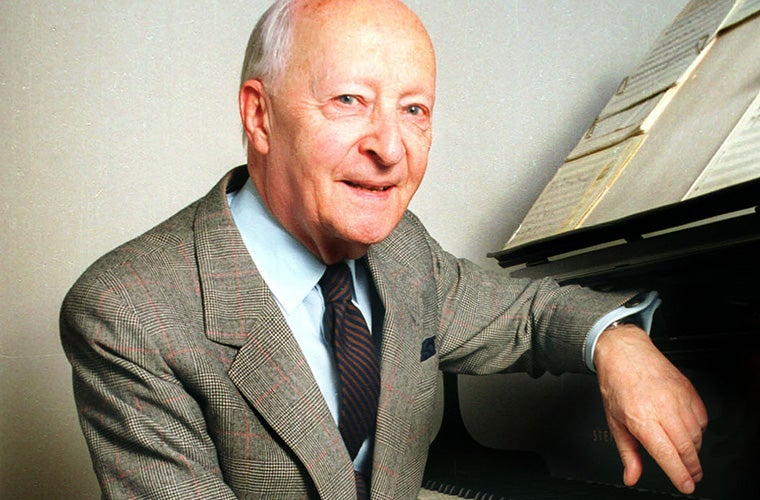
Witold Lutosławski
1913 - 1994
Biography
Witold Lutosławski was born in Warsaw in 1913. He embarked upon part-time studies in piano and composition at the Warsaw Conservatory in his late teens.
After being captured by German soldiers while on military service during World War II, Lutosławski performed piano duets in Warsaw cafes with friend and fellow composer Andrzej Panufnik. The pair performed a range of repertoire, even defiantly playing prohibited Polish music.
Lutosławski devoted the years following WWII to the completion of his Symphony No. 1, at the same time writing music which he deemed ‘functional’ (including film scores and carols). Although the Soviet authorities rejected the work as ‘formalist’, the 1954 work Concerto for Orchestra (completed the year following Stalin’s death) proved a resounding success. However, it was only with Musique funèbre - Lutosławski’s 1958 memorial to Béla Bartók - that the composer was truly catapulted to international success.
Jeux Vénitiens (completed two years later) saw a significant shift in Lutosławski’s style as the composer began to introduce elements of chance into his works. From 1963 Lutosławski became increasingly prominent on an international level, garnering a plethora of awards.
Following years of upheaval, Lutosławski finally refused all professional engagements in Poland from 1981 (only relenting after political reform in 1989). The composer maintained his hectic schedule until the end of his life, premiering his Symphony No. 4 in 1993. He died in 1994.